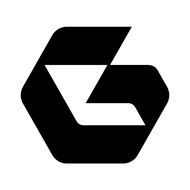With the exponential growth of social media's influence on modern life, it's no wonder that Facebook groups have become gold mines for data enthusiasts. These virtual communities are ripe with insights, user interactions, and trends waiting to be analyzed and harnessed. Whether you're a marketer aiming to understand your target audience better, a researcher seeking qualitative data, or simply curious, scraping data from Facebook groups can unlock a plethora of valuable information. However, navigating through Facebook's myriad of privacy policies and data restrictions while maintaining ethical standards is no small feat. Today, I'll walk you through how I managed to ethically scrape data from Facebook groups, sharing some tools and techniques that have proven effective.
Navigating the Legal and Ethical Maze
Before I dive into the nuts and bolts, let's clear the air about the legal and ethical considerations. Facebook's tight grip on its data is no secret, with stringent terms of service that outright ban unauthorized data scraping. Ignoring these could land you in hot water – think legal battles and banned accounts. Therefore, respecting user privacy, intellectual property rights, and obtaining proper permissions were top priorities in my data scraping journey.
The Toolkit for Ethical Scraping
Web Scraping Software Galore
The backbone of my endeavor was a suite of web scraping tools. These clever pieces of software are designed to automatically extract data from web pages, saving you the hassle of manual copy-pasting. Here's a rundown of those that I found invaluable:
- Beautiful Soup: This Python library was my go-to for parsing HTML and XML documents, allowing me to sift through and extract the data I needed with ease.
- Scrapy: Another Python gem, Scrapy, made crawling websites a breeze thanks to its robust data extraction tools.
- Selenium: When it came to dynamic content-loaded via JavaScript, Selenium was a lifesaver, enabling automated web page interactions.
- Puppeteer: Node.js enthusiasts would appreciate Puppeteer for its headless browser automation, perfect for scraping dynamic content.
- Octoparse: For those without a coding background, Octoparse's visual interface allowed me to select and extract data points without writing a single line of code.
Chrome Extensions: A Goldmine
Chrome extensions added another layer of convenience to my scraping arsenal. These nifty tools installed in the Google Chrome browser extended its functionality, making data extraction simpler:
- Data Miner: This extension was particularly handy, providing a user-friendly interface to scrape data from Facebook groups and save it in various formats.
Steering Clear of Privacy Pitfalls
Understanding Facebook's group privacy settings was another crucial step. I steered clear of closed or secret groups, focusing only on publicly accessible ones to ensure compliance with Facebook's policies.
Best Practices to Live By
Throughout the process, I adhered to a set of best practices to maintain ethical standards and avoid breaching Facebook's terms of service:
- Rate Limiting: To avoid sending too many requests to Facebook's servers in a short timeframe, I implemented rate limiting in my scraping code.
- Data Caching: To optimize the process, caching recovered data locally minimized repeat requests, reducing the load on both Facebook's servers and my patience.
- Staying Updated with DOM Elements: Facebook's frequently changing DOM elements posed a challenge, necessitating continuous updates to my scraping scripts.
In Conclusion
Embarking on a data scraping project from Facebook groups opened up a world of insights and information previously locked behind social interactions. While it was paramount to navigate the ethical and legal landscapes carefully, the journey proved fruitful. For anyone looking to dive into data scraping from Facebook groups, remember—respecting privacy, adhering to legal guidelines, and using effective tools can unlock vast amounts of valuable data without crossing ethical boundaries. Whether for market research, academic purposes, or pure curiosity, harnessing publicly available data ethically and responsibly can be a game-changer.





Top comments (0)